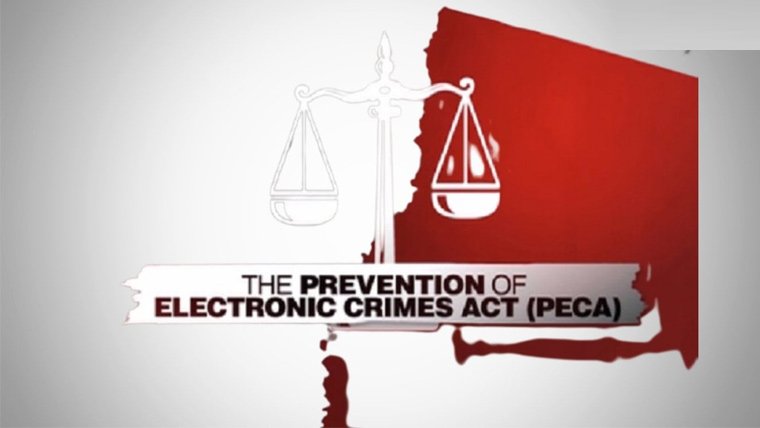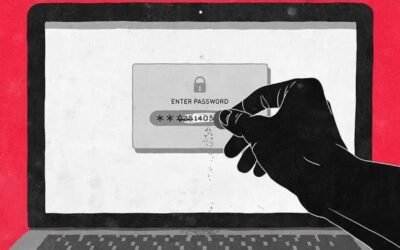On January 29, 2025, President Asif Ali Zardari gave assent to amendments in Pakistan’s Prevention of Electronic Crimes Act (PECA) of 2016, ushering a new era of digital regulation and cybercrime enforcement. The amendment bill, fast-tracked through Parliament with limited consultation and intense opposition, expands state authority over online content, creates new institutions, broadens definitions related to “fake news,” and escalates penalties. While the government considers this move imperative for managing cyber threats, civil society and media groups warn it threatens free speech and due process. The article unpacks the amendments, responses, implementation frameworks, and the pressing need for balance to ensure cybersecurity, protection of national interest and human rights.
Background of PECA and Need for Amendments
The Prevention of Electronic Crimes Act, 2016 was Pakistan’s first comprehensive legal framework to combat cybercrime, covering offenses like hacking, identity theft, cyber terrorism, and electronic fraud. Over time, rapid technological advancements and the growing role of social media in public discourse exposed gaps in the law’s ability to regulate new challenges such as misinformation, online defamation, and digital harassment.
The 2025 amendments were introduced to modernize PECA in response to these evolving challenges, aiming to create a safer digital environment and hold online actors accountable for harmful content. The amendments received presidential assent on January 30, 2025, officially becoming law.
Key Amendments: New Powers, Institutions, and Penalties
a. Criminalizing “Fake News”
Under newly introduced Section 26A, the act outlaws the intentional dissemination of false or “fake” information that could create “fear, panic or disorder” among the public. Such violations may incur
up to three years’ imprisonment and a PKR 2 million fine—a significant escalation in punitive measures.
b. Expansion of Regulated Content
The scope of “unlawful content” has been broadened to include anti-state or anti-Islamic materials, content threatening public order, contempt of court, hate speech, obscenity, defamation, and “aspersions” against state institutions.
c. New Regulatory and Adjudicative Bodies
- Social Media Protection and Regulatory Authority (SMPRA): Comprising officials from the Interior Ministry, PTA, PEMRA, and Information Ministry. This body may instruct platforms to block or remove content and enforce compliance, including mandating local offices for global tech companies.
- Social Media Protection Tribunal: Chaired by a former High Court judge and including a journalist and software engineer. Its orders are to be implemented initially, with appeals only admissible before the Supreme Court within 60 days.
- National Cyber Crime Investigation Agency (NCCIA): Formally established in May 2024, NCCIA replaces the FIA’s Cybercrime Wing. The amendments solidify its role under PECA, positioning it under the Interior Ministry with centralized cybercrime enforcement responsibility.
Objectives Claimed by the Government
Proponents argue that the amendments are necessary to:
- Enhance accountability in the digital space.
- Combat misinformation and fake news that can destabilize public order.
- Protect digital rights by creating a safer online environment.
- Align Pakistan’s cyber laws with modern technological realities and international standards
Legislative Process and Public Backlash
These changes were introduced on January 22, passed from the National Assembly on January 23, and approved by the Senate on January 28, all within a single week and with minimal debate. Some factions of journalists and civil society opposed these amendments, however, the threat posed to national security and cohesion mandated these amendments.
Implications for Freedom of Expression and Civil Liberties
Experts and rights advocates argue that key aspects of the amendments are vaguely defined..
- The undefined terms “fake” or “false” news and the inclusion of abstract categories like “aspersions” grant sweeping executive authority.
- The denial of intermediate judicial review appeals go directly to the Supreme Court, diminishes due process and sidelines provincial high courts.
- SMPRA’s powers to compel social media platforms to establish local offices and produce unencrypted user data raise concerns about privacy and data sovereignty.
Lack of Stakeholder Consultation
The legislative process was criticized for lack of consultation with media, civil society, and digital rights groups. The amendments were passed swiftly without meaningful debate in the parliament.
Risk of Overreach and Abuse
Given PECA’s history of being used to target journalists and activists spreading fake news or propaganda against the state, the new powers, granted through amendment, could further tighten government control over Pakistan’s digital landscape.
Cybercrime Enforcement: Toward Centralized Policing
The consolidation of cybercrime enforcement under NCCIA aims to streamline investigations and prosecutions. Since its inception in May 2024, NCCIA absorbed around 15,000 existing cases from the FIA’s Cybercrime Wing. This places cybercrime under Interior Ministry command, which proponents argue will improve coordination.
Is Reform Possible?
To align the PECA Amendments 2025 with both Pakistan’s constitutional protections and international human rights standards, several legal and procedural reforms are essential. First and foremost, there is a pressing need to clarify vague legal definitions to prevent arbitrary or politically motivated enforcement. Secondly, the composition of the newly formed Social Media Protection Tribunal should be impartial by appointing members through a judicial commission, rather than direct executive nomination, ensuring fairness and independence.
Additionally, technical safeguards must be codified into the regulatory framework: SMPRA should be explicitly prohibited from demanding decryption of private communications to safeguard user privacy. Importantly, judicial oversight must be restored by allowing appeals to be first heard in the relevant provincial high courts rather than directly escalating to the Supreme Court, a process that currently undermines access to justice and due process.
Finally, to prevent permanent overreach, the most debated clauses, particularly Sections 26A, 37, and 2(a)—should include sunset clauses that mandate periodic parliamentary review, ensuring these provisions are not misused beyond their immediate legislative intent. These reforms, taken together, could bring necessary balance between national security interests and the protection of digital rights in Pakistan.
Conclusion: A Double-edged Sword:
The PECA Amendments 2025 mark a turning point in Pakistan’s cyber regulation, a wide-reaching consolidation of state power over news, speech, and online behavior. Moving forward, genuine stakeholder engagement, legal precision, and institutional checks are essential to preserve civil liberties while combating digital harm and to eradicate the controversies concerning vagueness of language.




























